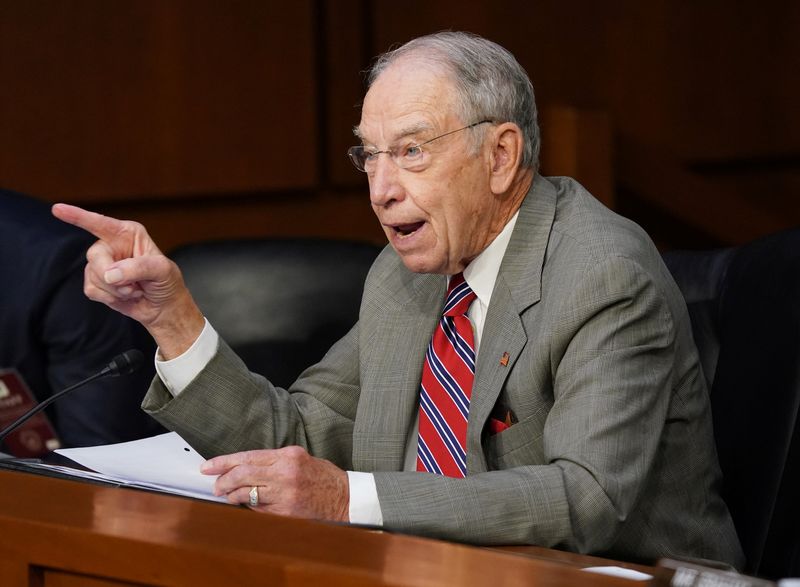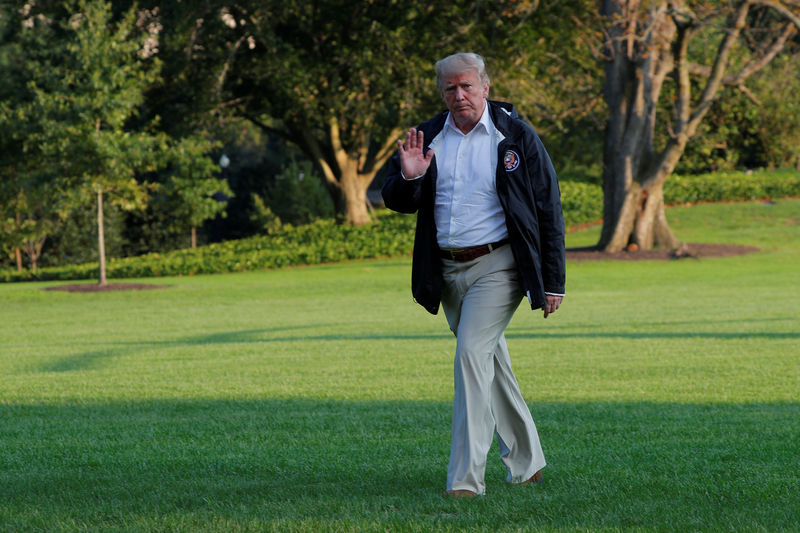(Reuters) - The exposure of another Republican senator to the coronavirus raised doubts on Tuesday about the U.S. Senate's vote on Republican President Donald Trump’s controversial pick for the Federal Reserve, former economic adviser Judy Shelton.
U.S. Republican Senator Chuck Grassley, the chamber's president pro tempore, said he was in quarantine after being exposed to the coronavirus and awaiting test results.
Asked what effect that could have on the vote, expected Tuesday afternoon, Senate Majority Whip John Thune was equivocal. "Yeah we'll see," he told reporters. "With the absences now, we have some attendance issues, so it's a little bit fluid, I'd say at the moment."
Grassley, 87, said in a statement that he was "feeling well and not currently experiencing any symptoms" but would follow public health guidelines and would continue to work from home. Grassley is also chairman of the Senate Finance Committee.
Republican Senator Rick Scott of Florida is also quarantining because of exposure to the virus.
Trump's Republican Party has a 53-47 majority in the current Senate. Tennessee's Lamar Alexander on Monday joined Republican colleagues Mitt Romney and Susan Collins in indicating he opposes Shelton's confirmation, though Alexander is not in Washington this week and won't cast a vote.
A procedural vote was expected to come on Tuesday afternoon, with a final vote on Shelton's confirmation later in the day. Grassley's absence could deprive Republicans of the necessary majority to muscle through Shelton's confirmation. Senate rules do not allow for voting by proxy.
Shelton, an adviser to Trump's 2016 presidential campaign, has argued the nation would be better off returning to the gold standard and as recently as 2017 criticized the Fed’s power over money and financial markets as "quite unhealthy."
Her views on interest rates have moved in lockstep with Trump’s. She lambasted easy money before Trump’s presidency but supported it after he took office, and has expressed skepticism over the Fed’s need to set policy independently from the president and Congress.
Thune said he still expects Republicans to have the votes eventually "although there is a little bit of a complicated factor in the Arizona seat."
Newly elected Democrat Senator Mark Kelly is eligible to take the oath of office as soon as Arizona certifies its election results, which is scheduled for Nov. 30. He expects to take office in early December.

Quarantines for COVID-19 typically last 14 days, meaning Grassley and Scott could be back at the Senate by then, health permitting.
